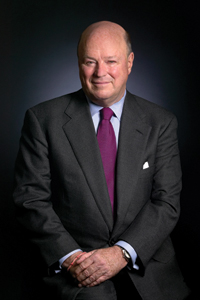
Look who's doing Libyan rebels' bidding in Washington Read more: Look who's doing Libyan rebels' bidding in Washington http://www.wnd.com/?pageId=319413#ixzz1RWeMOyFc
 Frank Wisner |
WND previously reported the International Crisis Group, or ICG, led in part by Soros, has long petitioned for the Egyptian government to normalize ties with the Muslim Brotherhood.
The ICG includes on its board Egyptian opposition leader Mohamed ElBaradei and other personalities who champion dialogue with Hamas, a violent offshoot of the Muslim Brotherhood.
WND reported on the numerous ties of Soros initiatives – including his own Open Society Institute – to the revolutions sweeping the Middle East and North Africa.
Earlier this week, The Hill reported Patton Boggs, the top-earning K Street firm, is lobbying for the rebels to be accepted in the international community as the "legitimate government of the sovereign nation of Libya," according to documents filed this week with the Justice Department.
The Hill reported Patton Boggs signed a contract with the so-called Interim Transitional National Council of Libya to provide "advice and assistance on U.S.-Libya bilateral relations," the documents said.
The agreement was reportedly signed with Ali Suleiman Aujali, the rebels' representative to the United States. Aujali resigned as ambassador to Libya in the wake of the NATO campaign targeting the regime of Moammar Gadhafi.
Patton Boggs' foreign affairs adviser is Frank Wisner, a career diplomat who served as U.S. ambassador to Egypt, India, Zambia and the Philippines.
July 7, 2011
